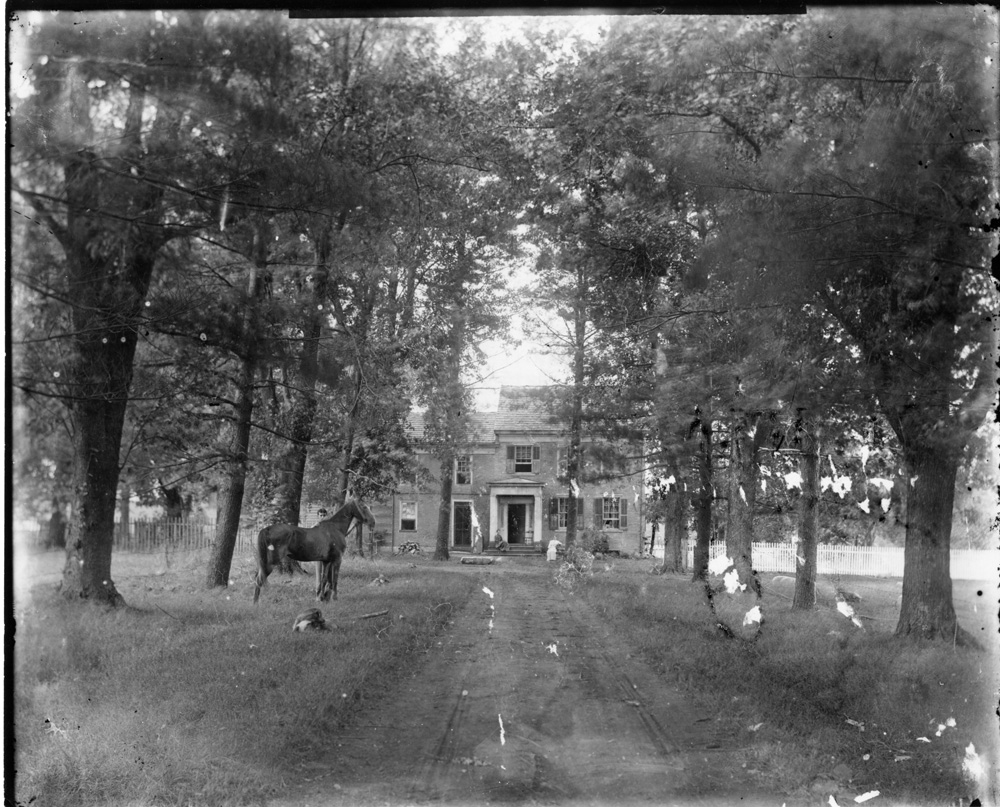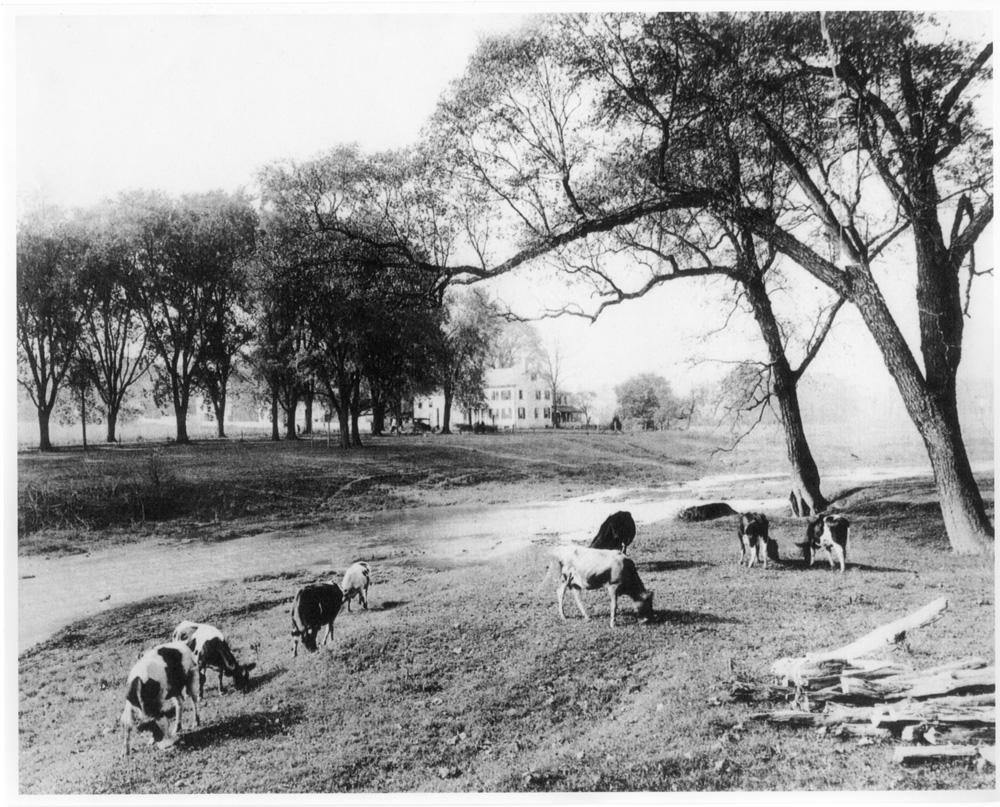
Entrance to the homestead
Collection of the Historical Society of Princeton

The Hunt Farm, circa 1920
Collection of the Historical Society of Princeton
Part of Early Stony Brook.
The earliest European settlers of Princeton had notably humble lifestyles. With their simple, function-oriented home design, sustenance farms, and modest occupations, the first generation of Stony Brook residents tended to live unpretentiously. Joseph Worth, a cooper (meaning his profession was in making barrels), purchased 220 acres of land from his brother-in-law Benjamin Clarke in 1697 and with his wife Sarah established a farmstead in 1709. The farm was owned and run by members of the Worth family until 1778, when Jonathan Worth sold it to a John Little. Little was a slaveowner; it is known that he kept seven enslaved people at the time of his death in 1794. After Little, the farm was owned by a succession of Oldens who, like the Worths, were among the first Quaker families in Stony Brook.
Original Sections: two-story stone farmhouse, underneath newer siding and the Federal-style side-hall addition
Present Use: private residence

Entrance to the homestead
Collection of the Historical Society of Princeton

The Hunt Farm, circa 1920
Collection of the Historical Society of Princeton